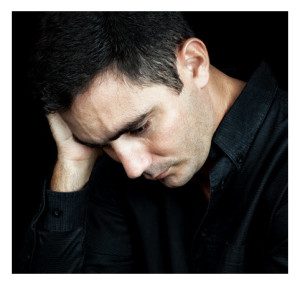The relationship between pain and sleep is a no-brainer: If you’re in pain, it’s tougher to fall asleep, and possibly, to stay asleep. But what about this: When you’re sleep deprived, you’re more likely to feel the pain you’re in.
 It’s no secret that I have had issues of chronic pain over the years: back pain and arm pain from injuries, and other bouts of discomfort that were eventually linked to vitamin deficiencies. Happily, the latter were effectively dealt with. The former remain a challenge, more so at some times than others, and I have noticed — sleep is a factor.
It’s no secret that I have had issues of chronic pain over the years: back pain and arm pain from injuries, and other bouts of discomfort that were eventually linked to vitamin deficiencies. Happily, the latter were effectively dealt with. The former remain a challenge, more so at some times than others, and I have noticed — sleep is a factor.
When I manage a decent night’s sleep, I wake in less pain.
Like millions of others, I have also suffered migraines, though I may go as long as three years without one.
A recent USA Today article tells us in no uncertain terms that our perceived relationship between pain and poor sleep is real.
Citing University of Michigan rheumatologist Daniel Clauw:
… People who have pain have more sleep problems, but people who have sleep problems also have more pain… The sleep problems sometimes come first, Clauw says. Even when pain comes first, sleeplessness can make it worse…
Bingo!
Fibromyalgia and Sleep
Once upon a time, I lived with fibromyalgia. During those years, few doctors knew anything about it, everyone told me it was “all in my head,” and I spent nearly a decade frightened and worried about what was wrong before one excellent physician provided answers. Better still, he discovered a link. In my case, that link was a sleep disorder.
Once the sleep disorder was identified (through a one-night sleep study in the hospital), it was easily dealt with. It was like lights being turned on after years in a darkened room. Everything in my life brightened and clarified. The pain that had weighed for so long, that I tried desperately to compartmentalize, eased. Over time, it disappeared.
Looking back, even now, I view this as my own personal miracle, at the hand of a dedicated doctor.
As for the chronic pain I live with now, for the most part, I’ve done what I was raised to do by my very New England mother: Go about your business, fulfill your responsibilities, and don’t complain. I’ve been falling down on that last of late. (Just ask the man in my life.)
Still, for the most part, this gets me through the day and keeps me engaged in “life” to a large degree. Certainly, the fact that I make my living with a laptop and iPhone (and a fully functioning brain!) aids me on the days when pain is especially nagging. And there are plenty of days when I’m out and about to see people for meetings or other activities, though come to think of it — far fewer in the past year.
Anyone for a Medical Merry-Go-Round?
When I raise pain issues with my primary care physician — and there have been many primary care physicians, not by choice, which is itself a common problem in this country — I find myself embarked on the referral runaround.
And oh, how finding the right physician can become a grueling and frustrating challenge!
Here’s an example. You’re handed a referral for a specialized orthopedist if it’s arm or shoulder pain, another referral for another specialist if it’s leg pain, and a referral for a rheumatologist if there’s any indication of arthritis. A variety of other tests may be involved: an MRI here, an X-ray there, and blood work. They all come with out-of-pocket costs, even if you’re insured.
You may or may not be able to afford those costs. Moreover, getting these physicians, technicians, and facilities to communicate and coordinate is yet another headache.
 Naturally, if you have back pain, depending on your age, you may be dismissed with conciliatory platitudes like “you’re getting older” or “you sit all day at a computer so it’s no wonder.” And, if you like, there’s another specialist referral along with mentions of acupuncture, chiropractors, and possibly a suggestion or two on stretching and posture. You may also be on the receiving end of “You seem depressed; aches and pains are normal; here’s a prescription for Prozac.”
Naturally, if you have back pain, depending on your age, you may be dismissed with conciliatory platitudes like “you’re getting older” or “you sit all day at a computer so it’s no wonder.” And, if you like, there’s another specialist referral along with mentions of acupuncture, chiropractors, and possibly a suggestion or two on stretching and posture. You may also be on the receiving end of “You seem depressed; aches and pains are normal; here’s a prescription for Prozac.”
Uh-huh.
If you’re anything like me, muttering “no thanks” to the Prozac — other than the pain, your life isn’t too bad — you spend a few years echoing what you’ve heard, telling yourself: “I’m getting older, maybe it’s a bit of arthritis, I should stand or stretch more when I work, it’s no big deal.” Besides… How many referrals do you have time for? How many hours away from paying work can you take? How many months (and co-pays) do you have to chase these doctors down?
And what about the complexity — and sheer fatigue — when new health insurance forces you to start over with a different doctor each calendar year?
The Costs of Chronic Pain
Guess what. Chronic pain is a big deal. Nagging pain that you live with every hour of the day drags you down. It affects your mood, your parenting, your relationships and of course, your wallet. Back pain can be especially tiring, and you find yourself no longer enjoying activities you once loved — volleyball at the family picnic, dancing with your spouse, even hiking up and down the neighborhood hills.
You’re also avoiding flights for business trips, and wishing someone else would teach your teenager to drive.
You count your blessings that your ailments are nothing serious, but your life is getting smaller. You’re just beginning to see it.
According to the American Chiropractic Association, some 31 million Americans suffer from lower back pain. And WebMD explains that 100 million Americans* suffer chronic pain of some sort. As The American Academy of Pain Medicine reminds us:
Millions suffer from acute or chronic pain every year and the effects of pain exact a tremendous cost on our country in health care costs, rehabilitation and lost worker productivity, as well as the emotional and financial burden it places on patients and their families.
Links Between Pain and Sleep
Back in my fibro days, when I had no idea what was wrong with me — was it really “all in my head” as I was told? — I slept three, occasionally four hours each night. I was married during those years, but my husband traveled; I was working a demanding corporate job, a portion of it from a home office; I had two very little boys to care for and all the usual “juggling” dramas. As for the pain, I popped Tylenol and did what I had to do.
Lying in bed alone at midnight or one, when the day’s work was over, I wept. During the worst periods, keeping depression at bay was… shall we say… a challenge. And for the ability to keep going with a stiff upper lip, I credit my beautiful sons and the necessity of my mothering duties.
And anyone who disbelieves that chronic pain can cause depression has never lived with chronic pain.
With fibro now a distant memory, I nonetheless notice that when pain flares with the fiercest intensity, it coincides with times of enormous stress and little sleep.
Studies on Sleep and Pain Levels
The Journal Sleep offers this abstract on a sleep-pain study that I find fascinating. While a small group (a sample of 119 patients, average age 46), they experience “chronic pain and concomitant insomnia.” The study was designed to examine:
… the influence of presleep pain on subsequent sleep and sleep on pain reports the next day…
The results:
… presleep pain was not a reliable predictor of subsequent sleep. Instead, sleep was better predicted by presleep cognitive arousal. Although sleep quality was a consistent predictor of pain the next day, the pain-relieving effect of sleep was only evident during the first half of the day.
How Do We Untangle Sleep, Stress and Pain?
 From the above results I conclude the following: I need to be sure I’m relaxing before I try to sleep, and my impression that I feel better in the morning after decent sleep is very real.
From the above results I conclude the following: I need to be sure I’m relaxing before I try to sleep, and my impression that I feel better in the morning after decent sleep is very real.
When we’re more rested from better sleep, we experience less pain, at least for some period of time.
I’m wondering what else might come into play. For example, are we also more energetic in general and therefore, more engaged in the activities we’re pursuing? Consequently, are we less focused on the pain?
When I’m laughing, deep in conversation, merrily distracted, or awed by beauty — a painting, a piece of music — I also experience a diminishing of physical pain. In contrast, when I’m stressed, everything in my life worsens. Sure, I muddle through and even manage a smile. Like most of us, I’ve mastered the necessary art of mask, which can be a useful tool.
I know this: When I’m in pain, I have trouble sleeping and I wake more often in the night. The less I sleep, the harder it is to concentrate and the grumpier I am. I’m also hungrier, which leads to eating more (and sugary foods), which leads to gaining weight (and feeling lousy).
When I’m stressed, I also have trouble sleeping. I have learned to give myself 45 minutes and if I’m still wide awake, I get up, I work, I read, or I write. Oddly (or perhaps not), this alleviates the stress, though it results in a night of few zzzs and the following day, more pain.
When Pain Becomes the Disease
 I’ve read a variety of articles that describe pain as its own disease. To some of us, this makes perfect sense. We are fundamentally in good health (and delighted that’s the case), but a variety of causes may mean we live with chronic pain, and when doctors cannot find the cause, we are dismissed. Or so it has been in the past, as this article in Spine Health explains.
I’ve read a variety of articles that describe pain as its own disease. To some of us, this makes perfect sense. We are fundamentally in good health (and delighted that’s the case), but a variety of causes may mean we live with chronic pain, and when doctors cannot find the cause, we are dismissed. Or so it has been in the past, as this article in Spine Health explains.
Managing the pain — whether nagging like mine or more acute — is critical. Ignoring it, however much for practical reasons (time, money), isn’t an answer. Perhaps viewing the pain as central rather than symptomatic will lead to more options for pain relief that include healthy eating, appropriate exercise, sleep, stress management, lifestyle changes and, where needed, affordable and covered medications, therapeutic massage, acupuncture or other alternatives that enable us to enjoy our lives.
And let’s say goodbye to the days of shuttling women out of the doctor’s office with this line: “Aches and pains are part of depression; here’s a Prozac.”
One final note: As part of my commitment to a Midlife Makeover, with health and well-being my primary goal, I’m chasing down these sources of pain. In the past few weeks I’ve zeroed in on one — it should be manageable — but oh, that timeline when it comes to referrals, appointments, and whatever comes next. I am determined to get answers, to do what I can, and to improve the quality of my daily life.
Do you deal with chronic pain? How do you treat it? What if pain prevents exercise? What have you learned about your own pain-sleep relationship?
*Source: WebMD, 2011
You May Also Enjoy
I do not currently have chronic pain, but during 2014 suffered from plantar fasciitis. Some days it was debilitating to the point that walking to the bathroom was something that I avoided. It was a struggle to keep exercising through the pain and there was no quick fix. In the middle of the worst, I struggled to avoid depression, but can label myself as generally discouraged and so much less optimistic. I lost hope that this issue would ever resolve and that caused me to fear aging and no longer trust my body.
I did not notice a difference in the amount of pain I experienced directly related to sleep, but I most certainly identified that my ability to cope with and handle the pain well, and to do the things necessary to improve, was all greatly affected by the amount of sleep I received. I am fairly vigilant to maintain healthy sleep patterns and require a good bit to operate well.
Slowly, I have seen such great improvement! I still have aches and pains, but the constant chronic pain is no longer part of my daily life. I’m more cautious in the shoes that I select and wear, I’m more aware of the precursers to injury. I am managing, but cautious.
I would love to go back to the orthopedist who did it all and treated whole body with pain. Too specialized to me.
I’m with you on that, Madge! The specialization has made it terribly complicated for the patient, especially in exploratory stages when there is no need for a specialist! Not to mention, it’s a good deal more expensive and delays treatment.
My bout with constant pain was several years ago labelled as foot or heel pain, and treated much like plantar fasciitis and the like. Steroid shots remedied the pain only for a short while, as did all orthopedic remedies. Talk about getting grumpy! After several years, I finally went to an acupuncturist and he treated me for a pinched nerve in my neck. It was long and slow, but he was spot-on. I could walk again.
My sleep pattern tends to be erratic, and I am in the midst of an insomniac period. I have never been very good about getting up again after waking at some ungodly hour, but now I while away with my iPad, and then get up for good at 4 a.m. It is beginning to show on my face. Wishing you well enduring and managing your pain.
Having lived with insomnia for many years now, I have to say that I can’t begin to imagine what it must be like to not sleep and be in pain. And certainly, the morning after connection makes a lot of sense to me. I wonder if you have tried breathing techniques for when you can’t sleep? They could be beneficial for the pain too. Just a thought.
I remember those nights where I lost a lot of sleep because of back pain. It used to keep me up making it difficult to sleep. On other nights I just woke up at night because it felt uncomfortable and couldn’t sleep. Definitely awful. Thank goodness for the back adjustments and exercise things are a lot better now.
OH my gosh I have a friend who suffers from FIBRO……………I must get her to read this!
Plus, I was told to take the P pill too and politely declined……………..My problem is I am tired ALL the time even after 8 hours sleep!Headed for a sleep apnea test next month.Hope they can figure that out!
D.A.
I totally relate to everything you have mentioned in this article.
I have lower back pain, sciatica nerve pain,
Shoulder pain, neck pain, chronic pain all the time.
I don’t like doctors and I don’t like taking medication.
I am more of a holistic person.
While acupuncture does work on me , I cant afford to get it on regular basis.
Health insurance doesn’t cover holistic treatments, such a shame .
Cheapest thing to deal with the pain is I take Aleve or Advil.
I don’t like taking these pills everyday, but no choice or I can’t function at all.
Even as a child, from the age of 6 I never slept well. But was able to function even without sleep.
Nowadays need some sleep to function.
I don’t fall asleep unless I take Advil PM.
I know it isn’t good taking everyday, but without it I just don’t fall asleep.
Even with Advil PM I get only 3-4 hours of sleep.
Body aches, feeling too hot even though it’s 65 degrees, stress, anxiety, thoughts
All keeps me awake, or I sleep and wake up so many times throughout the night.
So I just learned to live with being tired all the time.
Learned to somewhat function with the pain.
I am sure all this contributes to depression.
Financial stress doesn’t help either.